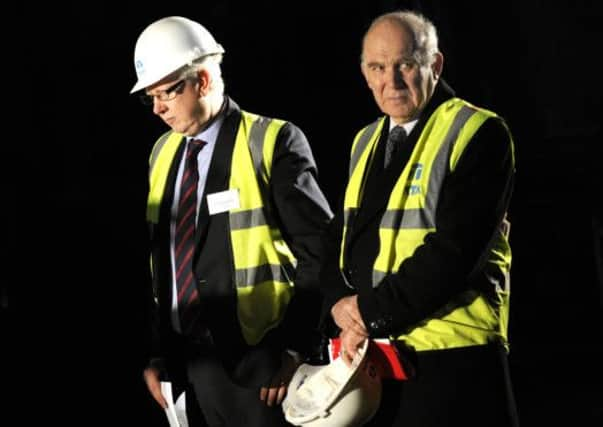Cost of energy making sector uncompetitive


Speaking at an energy conference in Sheffield yesterday, Mark Broxholme, managing director of Tata Steel, said high energy users were having to switch off production at peak times of the day to avoid paying excessive electricity charges.
The number of times workers cease production, known as load managing, has risen to around 30 times a year and fears are rising that it could climb even further in the face of uncertainty over Government energy policy.
Advertisement
Hide AdAdvertisement
Hide AdMr Broxholme said: “The National Grid recovers a lot of money by increasing its prices by 300 per cent during the three half hours of most demand.
“To heat the cabin where our guys sit would normally cost about 11p for half an hour but during that time the price goes up to about £33. So when the National Grid calls to say we need to load manage, we have to switch everything off, including the heating and lights.”
But Mr Broxholme added there is no guarantee that the National Grid will be 100 per cent accurate when forewarning companies because the peak times are worked out retrospectively.
Tata Steel recently miscalculated one of the three half-hours, which Mr Broxholme said cost the company £1m in real terms.
Advertisement
Hide AdAdvertisement
Hide Ad“The problem this year is that we’ve had a very mild winter in terms of temperatures so predicting when these three things are going to happen is very difficult,” he said.
“That mistake cost the equivalent of employing 30 highly-skilled workers for a year. It’s just a crazy archaic way of doing things.”
Mr Broxholme added that the company, which has plants in Stocksbridge and Rotherham, has had to turn orders away because it can’t afford to make the steel during the peak energy hours.
“Last week we didn’t make any steel during the 4pm-6pm period,” he said. “An hour of production standing still costs the company thousands of pounds because we still have to pay all the wages and business rates.”
Advertisement
Hide AdAdvertisement
Hide AdHe added: “It is almost like a third world system. It’s been a feature of the industry for a long time but the worry now is that if the capacity is going down and the demand carries on going up, we are going to be asked to load manage even more to make sure that lights don’t go out in houses. It’s a major issue for us.”
Tata spends £75m a year on energy. Mr Broxholme said the Government’s green taxes put its energy bill about 25 per cent above those of its competitors in France and Germany.
“We want a level playing field. We’ve got the workforce, we’ve got the skill base but we are being disadvantaged by the energy and there is no long-term policy so what is going to happen next appears to be at the whim of the Government and popularist policies,” he said.
Mr Broxholme was speaking at the Energy Breakfast event, hosted by manufacturers’ organisation EEF in partnership with the Company of Cutlers, where the two organisations signed a partnership agreement to work together on key issues.
Advertisement
Hide AdAdvertisement
Hide AdMaster Cutler Tony Pedder said: “For me it seems absolutely crazy that in 2014 we’ve got big manufacturing industries like Tata Steel who are having to manage their production minute by minute, day by day because of energy pricing and availability.”
He added that green taxes, such as the unilateral carbon tax, make the UK an uncompetitive base for manufacturers and called for them to be scrapped.
“We’re paying substantially more for our electricity than many of our competitors in Europe and Europe itself is not the most competitive place in the world,” he said.
“Price is an issue and availability is an issue. I would slow down the coal fire power station closures and I would make sure there is ample capacity, because it’s by having more capacity and more competition that you drive some of the pricing issues as well.”
Advertisement
Hide AdAdvertisement
Hide AdTerry Scuoler, chief executive of EEF, added: “Quite clearly, we want the Government to flatten their trajectory of electricity price rises and put a freeze on the Carbon Price Floor. We want the compensation package for energy intensive users extended to 2020 and, financially, we want it to include a measurable part of the Renewables Obligation.”